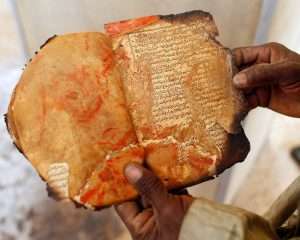Water dispute sparks deadly violence in Chad, 33 killed

Chad water dispute causes intercommunal violence killing 33 people. (via Anadolu Agency)
In southwestern Chad, a water dispute over a well triggered intercommunal violence, killing at least 33 people, according to the Anadolu Agency on 5th November.
The well, which is claimed by two communities, has been on disputed land since 1967. The conflict killed 18 people and injured 20 in the Hadjer-Lamis province and also spread to neighbouring Barh El Gazal, killing 15 more and injuring an equal number, according to a provisional toll.

The intercommunal confrontation occurred late on November 4th at a place called Dibebe, a rural settlement approximately 200 km northeast of the capital city N’Djamena, in the semi-arid Hadjer-Lamis province.
A delegation, including Chad’s Territorial Administration Minister Limane Mahamat, Justice Minister Youssouf Tom, and Public Security Minister Ali Ahmat Akhabach, visited the scene to evaluate the situation and support efforts to restore order.
The semi-arid climate of Chad makes the country prone to drought, scarce water resources, and consequently, a harvest that does not match demand, resulting in low food security. Recently, Chad secured a $16 million loan for a development project that improves water use and expands farmland for rural populations.
According to studies by the UN, 80 per cent of the population in Chad relies on agriculture as a profession, and 6.9 million Chadians face food shortages before the next harvest season due to scarce resources.
The political transition of Chad and its recent elections give an unstable backdrop to these intercommunal conflicts, where tensions are high despite the intervention of security forces. The ruling party, led by President Mahamat Idriss Déby Itno, has faced accusations of manipulating the electoral process — deepening mistrust and underscoring the fragility of Chad.
Chad is also affected by recent escalations in Sudan, as it hosts millions of displaced Sudanese people due to civil war. Humanitarian crises on the Chad-Sudanese border of Ouaddaï show that people only receive 6 litres of water a day, which is below the WHO’s minimum recommendation of 20 litres; putting the region’s broader water scarcity into perspective.
Anadolu Agency, Maghrebi.org
Want to chase the pulse of North Africa?
Subscribe to receive our FREE weekly PDF magazine














